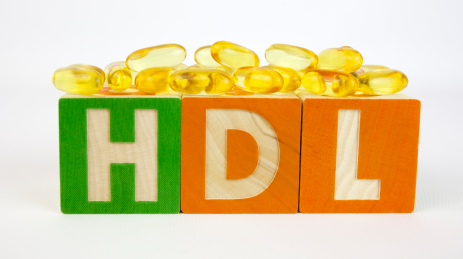When Added to Valproate, Memantine Increased HDLs (“Good” Cholesterol) But Did Not Enhance Effectiveness of Treatment
R.B. Lu and S.Y. Lee reported in a poster at the 5th Biennial Conference of the International Society for Bipolar Disorders in 2012 that adding memantine (Namenda) to treatment with valproate (Depakote) was associated with increases in high-density lipoproteins (HDLs) or “good” cholesterol in bipolar II depressed patients. However, the combination was no more clinically effective than valproate alone in treating the patients’ bipolar illness, as had been hoped.
Editor’s Note: These data on memantine’s failure to improve patients’ bipolar illness when used as an adjunct to valproate contrast with those of Amit Anand et al., who reported in 2012 that memantine was a partially successful adjunctive treatment when added to ongoing treatment with lamotrigine. This combination of lamotrigine plus memantine was associated with faster and more robust antidepressant effects than the combination of lamotrigine plus placebo in patients with bipolar depression. This effect was significant in the first four weeks of the study as the dose of memantine was slowly increased from 5mg/day to 20mg/day, but not over the last four weeks of treatment at 20 mg/day.
The data of Anand et al. makes theoretical sense. Since lamotrigine inhibits the release of glutamate and memantine inhibits the actions of glutamate at the NMDA receptor, the two together might produce additive decrements in glutamatergic actions through two different mechanisms. In contrast, valproate is more closely associated with increases in GABAergic mechanisms, and this may explain why its effects on bipolar disorder were not improved by the addition of memantine.


